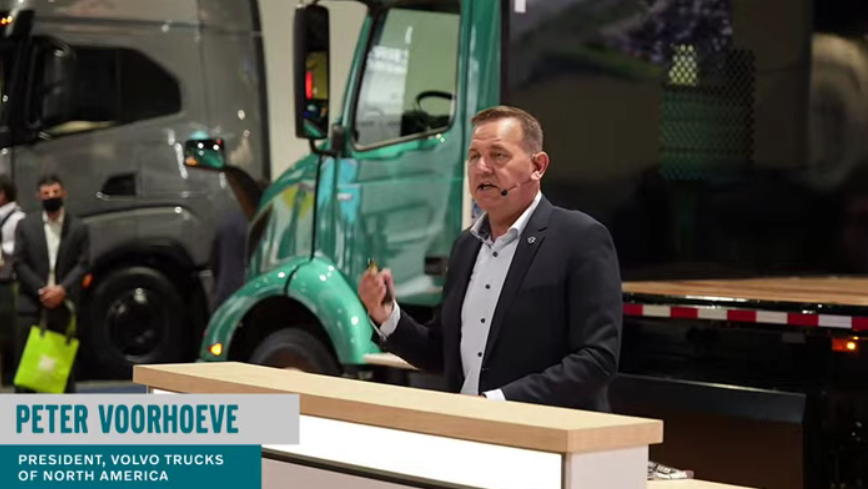Volvo Trucks president sounds alarm on climate change, urges electrification
Volvo Trucks says it will have a rolling fleet consisting only of zero-emissions trucks by 2050, with 35% of its sales electric by 2030.
By 2040, its entire product line will be fossil fuel-free. And today, Volvo Trucks North America (VTNA) says it is taking steps to ensure even the production of its trucks and its supply chain are emissions-free.
Peter Voorhoeve, president of VTNA, announced at ACT Expo that three VNR Electrics are being enlisted for parts deliveries to and from its New River Valley truck plant in Virginia. That plant is already a carbon-neutral, zero waste to landfill, facility.
“By the end of this year, 2021, three trucks will be electric, operated by our transport suppliers and will supply parts to our factories with zero emissions,” he said. “That means, with these trucks making 16 round-trips per day, we are going to save roughly 140 million tons of emissions and 18,000 diesel gallons per year.”

Voorhoeve expressed urgency to transition to a zero-emissions transport future.
“The climate is changing,” he said. “We don’t have a lot of time anymore.”
He also said the ACT Expo show this year, to him, means “Act now.”
“We are running a little bit out of time,” he added.
Volvo opted to first electrify its VNR model in 2018, and it entered production this year. But in addition to selling the truck, Voorhoeve acknowledged the OEM must also provide the consultation, financial services, charging infrastructure advice, and support for those trucks. It is getting its dealer network EV-certified and offering to manage maintenance for customers for the first six years.
Volvo also announced at the show its single largest order for electric trucks to date, a 16-truck order from Performance Team, a Maersk company. Those trucks will be delivered this year and will haul loads across Southern California.
“If we want to be a zero-emissions rolling fleet by 2050, we need to get started now,” Voorhoeve said, noting fuel-cell-electric and internal combustion engines that don’t rely on fossil fuels will also be part of the equation. “We need to act now, we need to get going. We have a responsibility to take care of the planet we live in.”
Have your say
This is a moderated forum. Comments will no longer be published unless they are accompanied by a first and last name and a verifiable email address. (Today's Trucking will not publish or share the email address.) Profane language and content deemed to be libelous, racist, or threatening in nature will not be published under any circumstances.